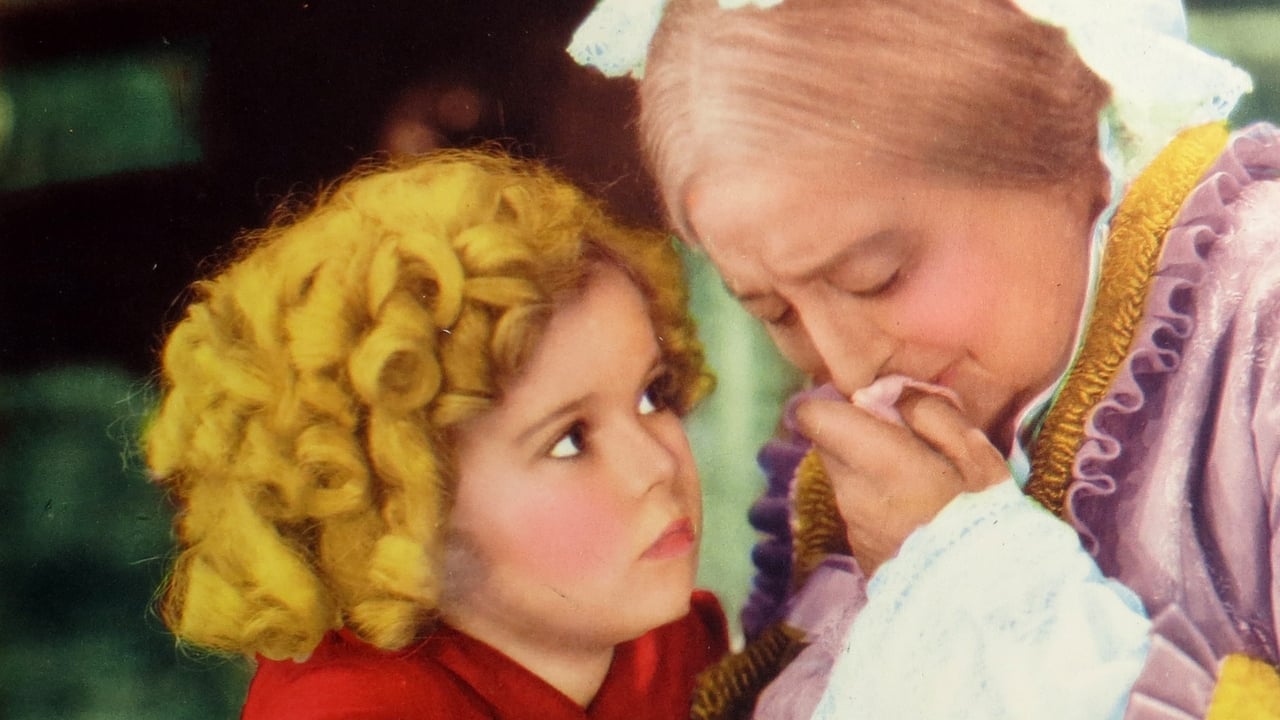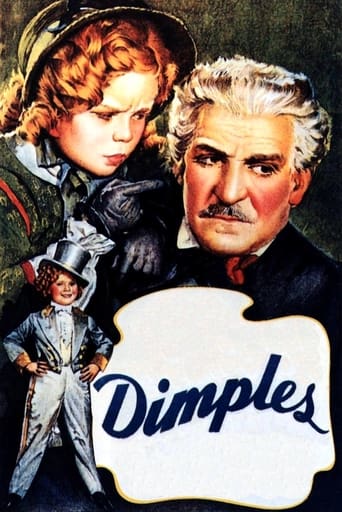JohnHowardReid
Copyright 16 October 1936 by 20th Century Fox Film Corp. New York opening at the Roxy: 9 October 1936. 7,108 feet. 79 minutes.SYNOPSIS: Bowery street waif becomes Broadway star, despite opposition - "You know how I hate the theatre and all it stands for. If you leave this house you may never expect to come back to it."COMMENT: A compendium of every cliché known to Victorian melodrama, but I liked it. At least one of the worst sequences of unbridled sentiment is missing from the current TV version and one cannot but applaud its removal. The film is somewhat light on songs and one could have wished for at least another production number to cap or offset the agreeable minstrel-type finale. Casting is well-nigh perfect (Mr Fetchit's part is not nearly as obnoxious as usual) and the script provides meaty parts for Frank Morgan and Helen Westley. Direction and photography are pretty ordinary, however, and the sets and costumes have to contend against their current presentation in an indifferent TV print. Still, the sound has been re-recorded and it comes across to-day with a fidelity and clarity (thanks to peerless original recording) that must make Douglas Shearer and M-G-M squirm with envy.OTHER VIEWS: 2018 prints are still missing 5 or 6 minutes (including all of Herman Bing and Arthur Aylesworth) but all the songs have now been pleasingly restored, thus giving the melodramatic story a balance which greatly improves the entertainment value of the whole. In fact the skill of such support players as Frank Morgan and Helen Westley helps carry the story. Berton Churchill has a characteristic part too and if the hero and his heroine are a bit wet (Astrid Allwyn makes an agreeably tempting siren but her part is tiny) their parts are small enough to make little difference. John Carradine plays a confidence man with his usual affable rascality, while Stepin Fetchit is mildly amusing as Morgan's servant ("Pour? Pour what?").
weezeralfalfa
WARNING: Several blackface musical numbers are included. If sensitive to such, best not to view this film or close your eyes during these portions. Our story takes place in 1852 in NYC. The screenplay is driven by several conflicts, There's the conflict between wealthy Mrs. Drew and her nephew Allen over the worth of plays and actors. Allen, who is interested in theater, and in marrying an actress, gets no financial help from Drew for his theater projects. Furthermore, she says if he persists in marrying an actress, he will not then be welcome into her house. Allen also has to decide definitely which actress he wants to marry, as he has recently changed his mind several times.The major conflict is between Shirley's desire to obtain the finer things in life and an education , by living with Mrs. Drew, or to continue living with her grandfather "The Professor", in his apartment in the slums, where there are lots of kids and dogs to play with and perform street entertainment for change. Mrs. Drew offers $5000. to "buy" Shirley. The Professor initially rejects this temping offer, but later accepts it to replace the $800. he lost on an antique swindle he fell for that was supposed to pay for the startup of a show: "Uncle Tom's Cabin". But Shirley finds she's very lonely without her grandfather, her dog, and the neighbor kids to play with. She suggests that her grandfather marry Mrs. Drew as the obvious solution, but this isn't taken seriously. Thus, The Professor gives back the $5000., but sells her his worthless "antique" watch for $1000., enough to cover his debt. Too late, she asks an antique expect, who tells her it's worthless. She calls for police to arrest him. They find him functioning as the director's aid in a performance of "Uncle Tom's Cabin". He dons blackface and extra clothes for Uncle Tom, and goes out on the stage when cued, but the real Uncle Tom player goes on the stage at the same time. He is caught; however, Mrs. Drew decides to stay for the rest of the show. She's very impressed with the play, and especially Shirley's part(Elyza)in it, and changes her mind about the worth of plays and actors. This may mean that Allen can get married to an actress without her disapproval. Also, she drops the swindle charge against The Professor , deciding that the $1000. she lost was worth it. The Professor kisses her neck, suggesting the possibility of a marriage, as Shirley hoped....Helen Westley, who played Mrs. Drew, was generally pleasant in her role when not forced to sponsor plays or when being swindled. She played matronly authoritarians mostly, and is an important character in 3 other S.T. films.The film begins with a street performance by Shirley and the neighbor kids, singing and dancing to "Hey, What did the Blue Jay Say?" Later, Shirley , along with 2 African Americans, dance to "He was a Dandy". When Shirley is considering leaving her grandfather, she sings "Picture Me Without You".. Later, she sings the African American spiritual "Get on Board", with a blackface chorus behind her. The minstrel show after the play consists of Shirley singing and dancing in front of a large chorus of men in blackface, at least one of whom: Stepin Fetchit was an African American in blackface! The song was Dixie-anna, quite catchy for a show song.
arete5000
Minstrel Shows, Stepin Fetchit, Blackface........kind of makes you long for the good old days when the colored knew their place. Negroes far and wide will once more call for their mammies when they take a gander at this 79 minute romp in the antebellum South. Shirley Temple couldn't have poisoned the well more if she came out and tap danced in a Klan hood. Once more playing the adorable waif (cast with the kind-hearted but sketchy grandfatherly type), Dimples shuffles her way into your big ol' racist heart with a big helping of maudlin sentimentality. Zanuck proved that with a commodity like Temple, no script was too hokey. Spike Lee could learn a thing or two about directing from this one. Who says the Hollywood musical is dead?
smaniaci
What a charming musical! Shirley Temple is absolutely adorable. I love when she sings "Get on Board" as Eva in Uncle Tom's Cabin. Her character is dressed in white. I love plenty of song and dance. It does not make me tired at all. What it does, is make me so very happy. The title alone, Dimples, is very charming. Shirley Temple herself as a child has had what the title says. That was for quite a long time. I have been very glad of that. It is a very old movie, but then again I like old ones. Whatever age you are, it is a must that you like good movies. This especially holds true for most of Temple's films. They are absolutely irresistible. Maybe someday I'll put on a song-and-dance myself. Who knows? The number "Miss Dixie-Anna" at the end makes it a great movie. Would I dare to say anything else about the ending? I really don't know for sure. No one wants to know that in advance. They want to see for themselves, thank you. Please let everyone enjoy this really good vehicle of Little Miss Temple.

